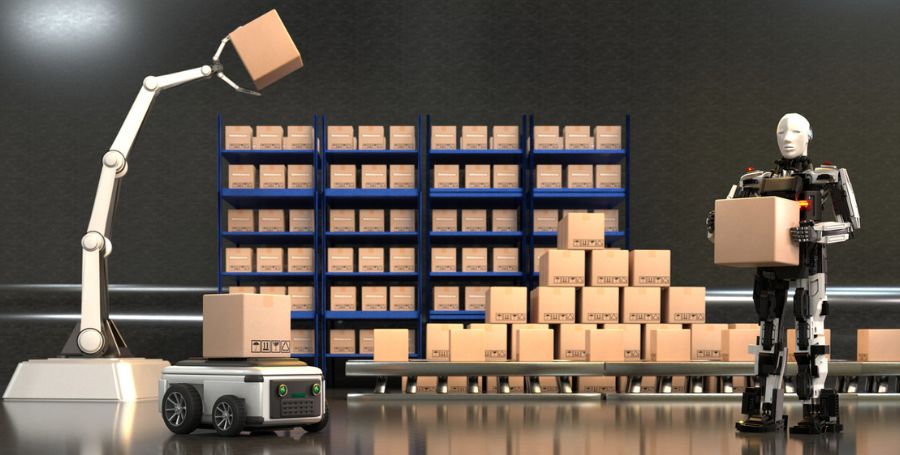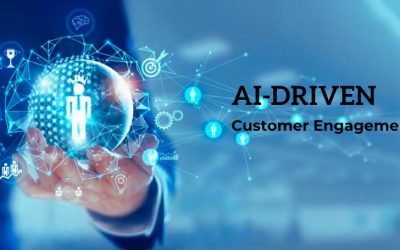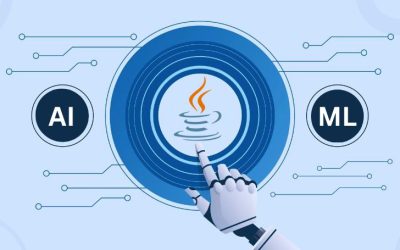Imagine a world in which machines not only respond but constantly learn and adapt – that is the promise of Adaptive AI, an incredible technology set to transform our lives in ways we cannot yet comprehend. Let’s venture together into this intriguing realm to examine its capabilities, potential, and ethical concerns.
Beyond Static Algorithms: At the Core of Adaptive AI
In contrast with traditional artificial intelligence systems that rely solely on static algorithms, Adaptive AI offers unparalleled capability of adapting its code based on new experiences and data accumulated over time – thus creating a dynamic learning process that empowers it to:
Increase Accuracy
As new information enters its system, Adaptive AI continuously improves its predictions and decision-making – becoming more reliable and accurate over time.
Acknowledging Unexpected Situations
In contrast with its static counterparts, Adaptive AI is designed to adjust to new circumstances as they arise – making it the ideal solution for complex and ever-evolving environments.
Customize Experiences
Adaptive AI can tailor its responses and recommendations to meet individual needs by comprehending your preferences and behaviors.
Unlock New Frontiers
Where Adaptive AI Makes its Mark Adaptive AI has enormous and transformative applications across industries and can impact our daily lives immensely.
Adaptable Decision-Making
Imagine financial institutions using AI that responds immediately to market fluctuations; and healthcare systems using it for custom treatment plans tailored specifically for individual patients’ responses; these scenarios all feature AI as the enablers behind Adaptive decision-making processes.
Customized Experiences
Think customer service chatbots that learn your preferred communication styles or product recommendations tailored to meet the changing interests of their users.
Transforming Industries
From self-driving cars that adapt to weather conditions to robots that quickly learn new tasks on demand, Adaptive AI holds great promise to transform fields ranging from manufacturing and logistics.
Ethics for AI

Ethical considerations must always play a pivotal role when developing and using any powerful technology, so as AI advances we must ensure its development and deployment adhere to strong ethical guidelines:
Transparency and Expandability
To ensure fairness and avoid biases in its decisions.
Human Oversight and Control
Although AI learns by itself, human supervision remains necessary to ensure compliance with ethical principles and social values.
Addressing potential Misuse
Safeguards must be implemented to prevent Adaptive AI from being misused for malicious ends.
Accepting the Adaptive Future
A Call-to-Action Artificial intelligence represents more than simply technology. It signifies an existential shift in how humans and machines interact. By acknowledging and acting upon its potential while adhering to ethical concerns, Adaptive AI could serve as an integral partner in shaping an increasingly intelligent world.
Join the Conversation
As we embark upon our transformative journey, remember that Adaptive AI’s future lies with us – let’s engage in open discussion to responsibly explore its capabilities, and ensure it serves humanity’s advancement for generations to come.
Learning on the Fly: How Adaptive AI Is Transforming the Future
Dynamic Decision-Making
Imagine a city traffic management system that automates real-time optimization based on weather changes, accidents, and rush hour dynamics to maximize traffic flow efficiently based on ever-evolving weather patterns, accidents, and rush hour dynamics as one example of Adaptive AI revolutionizing decision-making. AI could even tailor individual treatment plans by continuously monitoring patient responses to medications or therapies prescribed to them and personalizing therapies accordingly based on real-time market fluctuations as well as personal risk tolerance levels to provide tailored advice from an AI financial advisor: the possibilities are virtually limitless.
Hyper-Personalism on Steroids
Think beyond targeted ads and movie recommendations – Adaptive AI can create truly tailored experiences, anticipating needs before they even surface. A smart home system could pre-heat your house according to daily activities and weather data; educational platforms could adapt learning modules based on individual pace and comprehension levels; customer service chatbots may learn your communication style preferences to provide a seamless engagement experience – this transition towards hyper-personalization will transform customer engagement across industries.
Revolutionizing Industries
The implications of Adaptive AI extend far beyond personal experiences. Imagine self-driving cars learning to adapt to changing road conditions, weather patterns, and driving styles of other cars around them; manufacturing robots powered by Adaptive AI could learn new tasks on-demand for greater flexibility; agricultural robots might adjust farming techniques based on real-time soil analyses or weather predictions – the potential is immense!
Beyond Hype: Addressing Challenges
No matter how exciting Adaptive AI may seem to be in its future, significant challenges remain:
Data Bias and Explain Ability
Adaptive AI is designed to learn from its data source. If this source contains anything with biases that lead to unfair results for individuals. Explain ability presents another difficulty. To ensure fairness and accountability among AI’s decisions.
Security and Control
As AI advances, concerns over security and control become of increasing significance. Strong safeguards must be put in place to prevent malicious actors from exploiting or hacking Adaptive AI systems, and human oversight remains essential to ensure they meet ethical principles and societal values.
Human in the Loop
While Adaptive AI automates and personalizes tasks, human expertise will remain essential. We should carefully consider our roles as AI learns and evolves – how will we collaborate with these intelligent systems, what skills will be needed, etc?
Accepting Our Adaptive Future: A Call to Action
Artificial intelligence is more than a technological genius; it’s also a force of transformation. By harnessing its potential while considering ethics concerns, AI can serve as a collaborative partner, increasing our abilities while creating an ever more intelligent world.
Case Studies
Demonstrating real-life applications of Adaptive AI can demonstrate its positive impact across industries, with the key to demonstrating its effectiveness by providing real-life examples of companies that have implemented Adaptive AI Solutions with positive results.
Expert Interviews
Conduct interviews with prominent researchers, developers, and ethicists specializing in Adaptive AI. Their insights can offer invaluable perspectives while sparking further dialogue.
Future Scenarios
Brainstorm the possible future roles of Adaptive AI and their possible outcomes, drawing both positive and negative scenarios to promote meaningful reflection about the impact of this technology.
Beyond Hype: Addressing Challenges
Job Market and Reskilling
While Adaptive AI will automate tasks, it will also create new ones. To prepare workers for AI’s impactful presence in our future, investing in upskilling initiatives to develop individuals with adaptable, critical-thinking, creative abilities will be vital when working alongside intelligent machines.
The Global Divide
Unequal access to technology and resources could further compound existing global inequalities, so ensuring equitable access to Adaptive AI’s benefits requires international collaboration as well as targeted investments in developing nations. Bridging this digital gap is vital to foster inclusive and sustainable progress.
Human oversight and collaboration are crucial in ensuring the safe development and deployment of Artificial Intelligence Development technology based on established principles as it rapidly develops. For this reason, we should create clear ethical frameworks and governance structures ensuring AI development complies with established rules; for instance:
Transparency and Accountability
To understand how AI decisions are made, mechanisms need to be put in place that hold both developers and users responsible for misuse.
Human-in-the-Loop Systems
Designing AI systems that require human oversight can mitigate risks while guaranteeing responsible control.
Engaging the Public and Engaging Stakeholders
Engagement between all relevant parties is necessary for shaping AI to reflect society’s values and priorities, with specific attention paid to Fostering the Responsible Development of AI technologies.
Research and Development
Maximizing the potential of Adaptive AI requires investing in it while minimizing its risks.
Education and Awareness
Promoting public understanding of AI technologies is integral to building trust with citizens, businesses, and policymakers. Educational initiatives should target diverse audiences such as policymakers, businesses, and citizens.
International Collaboration
Cooperation among nations is vital to address global challenges, share best practices, and promote responsible AI development across borders.
Empowering Our Future
An Appeal to Action Mess Artificial intelligence offers humanity an unprecedented chance for progress. By accepting its potential while meeting its challenges head-on, we can usher in an age of global collaboration marked by evolution, adaptation, and shared prosperity. Join the conversation about Adaptive AI’s potential by responsibly exploring its possibilities, and shaping its development for our benefit.
Ethics Guidelines
Give examples of existing ethical guidelines related to AI Development such as Asilomar AI Principles or European Union Ethics Guidelines for Trustworthy AI development.
Policy Recommendations
Offer practical policy solutions to tackle problems like data bias, explainability, and security, while urging readers to connect with policymakers and support responsible AI development.
Actionable Step
Give individuals and organizations clear steps they can take to contribute responsibly to AI development and adoption, such as participating in public consultations or engaging with AI researchers – this could also include supporting organizations working on responsible AI practices.
By including these elements in a resource on Adaptive AI, you can develop something truly impactful that goes beyond simply reporting on its development. Rather it empowers individuals and organizations alike to actively participate in shaping the future. We cannot predict our actions’ effects on tomorrow; let’s work together so that Adaptive AI serves as a force for good that makes future generations brighter and more adaptable future.
6 FAQs about Demystifying Adaptive AI
Q. What’s the Difference between Adaptive AI and Traditional AI?
ANS – Traditional AI relies on static algorithms; in dissimilarity, Adaptive AI learns to evolve on its own over time, improving accuracy while adapting to changing environments and situations.
Q. Where Is Adaptive AI Already Being Implemented?
ANS – Adaptive AI has already been utilized successfully across industries including:
- Self-Driving Cars (SD Cars): Optimizing their learning to adapt to road conditions and driving styles.
- Recommendation Systems: Tailor product suggestions according to user preferences.
- Fraud Detection Technologies (FDTs): Recognizing new patterns of suspicious activity that require further investigation.
Q. How will Adaptive AI Impact my Job?
ANS – While some tasks may become automated, new opportunities will arise that require upskilling in creativity, critical thinking, and collaboration to flourish.
Q. Does Adaptive AI Pose any Threats to Humanity?
ANS – No. Though some issues related to bias, misuse, and job displacement exist, but responsible development with human oversight can mitigate risks and help ensure safe results.
Q. How can I Gain more Information about Adaptive AI?
ANS – Check out resources such as Algorithmic Justice League, Partnership on AI, and Future of Life Institute to become informed and participate in constructive discourses.
Q. Can Adaptive AI Ever Truly Comprehend Humans?
ANS – Although AI systems can learn to recognize patterns and respond accordingly, comprehending human emotions and motivations remains a complex endeavor.







